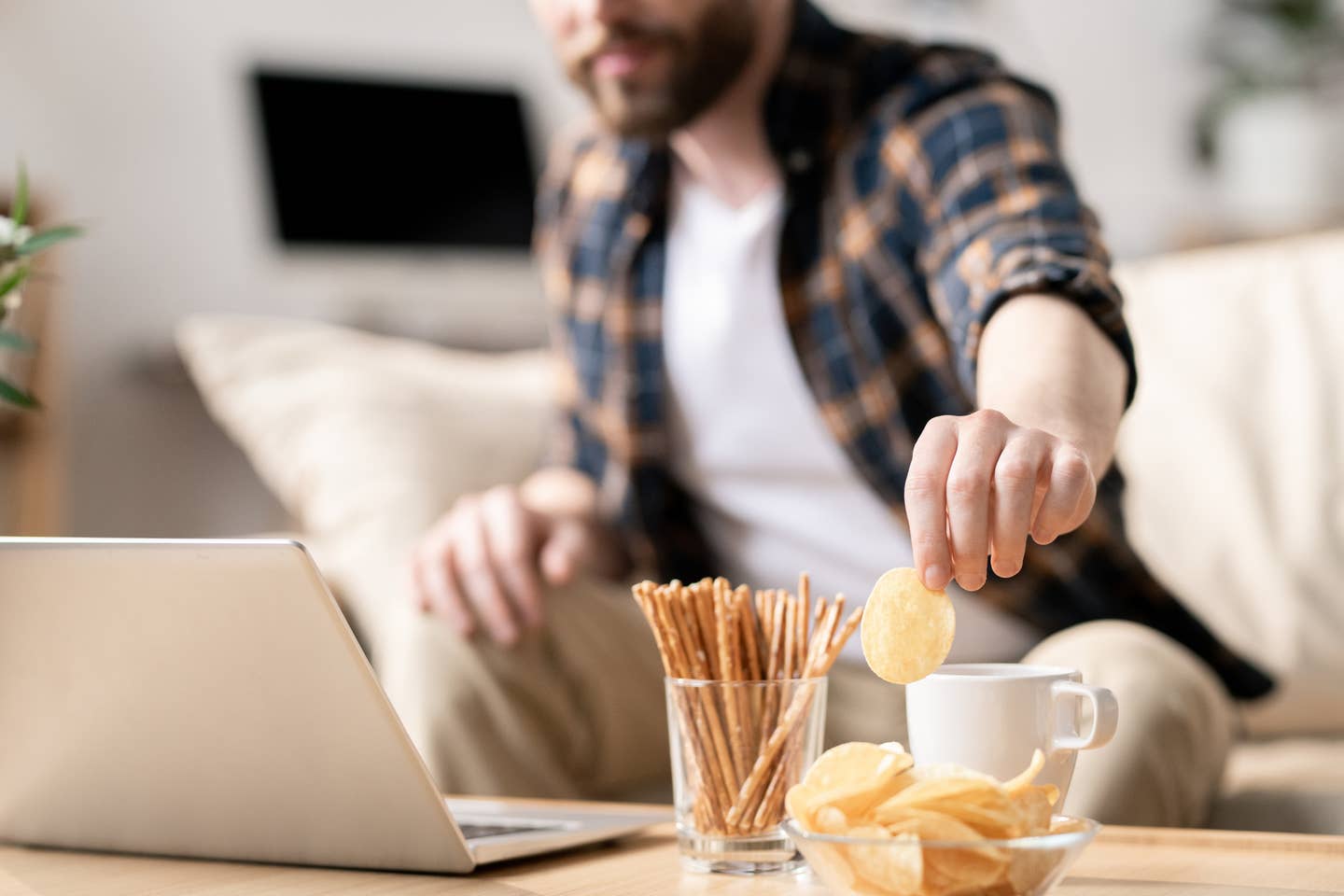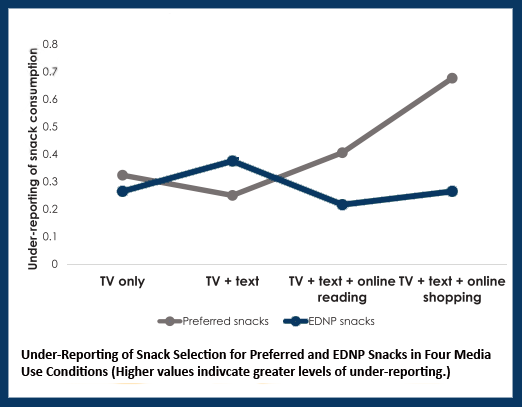
From Mindless to Healthier: How to Snack Smarter While Multitasking on Screens
The average American adult spends more than 11 hours per day on screens, according to Nielsen, and while they are watching TV, shopping on their laptop, and texting, they also mindlessly reaching for snacks. Now a new study says consumers under-report how much they eat while distracted by multitasking on several screens, but the surprising finding was that people actually under-report how much healthy foods they eat more than they under-report how much junk food they eat while zoned out. These researchers want to turn this into an advantage since Americans don't eat enough fruit, vegetables, nuts, and seeds.
The unlikely study results showed that not only did subjects underreport how much junk food they ate (which is to be expected. Who me? Eat all the chips?) But they also under how much healthy food they ate while distracted, including fruit, nuts, and vegetables. Now researchers want to use these findings to help people snack smarter while spending time on screens and encourage consumers to fill up on fruits, vegetables, and nuts (we would add seeds) when multitasking, according to a new report from researchers at Endicott College and Michigan State University.
"Doctors and nutritionists have long held that it's a bad idea to idly watch TV or pay attention to one's phone while eating unhealthy  snacks," said Anna McAlister, Ph.D., of the Gerrish School of Business at Endicott College in Beverly, MA. "But what if we start to encourage similar [snacking] habits, but substitute foods rich in nutrients? We could then tip the scales in favor of a healthy diet."
snacks," said Anna McAlister, Ph.D., of the Gerrish School of Business at Endicott College in Beverly, MA. "But what if we start to encourage similar [snacking] habits, but substitute foods rich in nutrients? We could then tip the scales in favor of a healthy diet."
Not surprisingly, time spent on all kinds of screens increased in 2020, partially due to the pandemic and partially due to the resurgence of media multitasking, meaning more people are using phones, TVs, laptops while doing other activities or while using other screens, eMarketer reports.
"Our study investigated 'mindless' snacking with healthful and less healthful foods," said Anastasia Kononova, Ph.D., of Michigan State University. "The findings show that participants ate greater amounts of healthy foods than they realized when they were multitasking with screen devices. But this happened only when participants enjoyed the multitasking situation."
The trick is to use that to help Americans eat more plant-baed healthy foods since now only 9 percent get the recommended daily 5 or more servings of fruits and vegetables a day.
Multitasking leads to snacking, and not paying attention to what we eat
- When participants used 3 screens to watch TV while simultaneously texting and shopping online, they misremembered the foods they had eaten. They under-reported their consumption of healthy foods and unhealthy foods, but this effect was more common for healthy foods.
- Participants described the situation of watching TV while texting and shopping online as pleasant.
- Participants who had more positive beliefs about a healthy lifestyle said they were more rational than emotional about snack selection.
"Surrounding oneself with snack-sized fruits, vegetables, and nuts in enjoyable multitasking situations means mindless eating can be a powerful nudge to facilitate greater consumption of preferred foods to combat health issues," said Dr. McAlister.
Those in the study underreported the number of healthy foods they selected while screen multitasking. Compared to participants with weaker health beliefs, those with stronger beliefs about a healthy lifestyle said they were more rational in selecting healthy snacks.
Sitting in front of a TV, computer and phone, choose healthier for your snacks
During the study, each participant was seated alone in a room that simulated a living room with snacks on a lazy Susan rotating plate. Snacks included potato chips, sugar candy, M&Ms, and healthier items (baby-cut carrots, cherry tomatoes, and almonds). Every participant was instructed to watch a sitcom episode selected by the researchers. Some watched the show only; others were also asked to multi-task by either watching the show while texting or by adding a third element like shopping online, a scenario the researchers considered not unusual, especially among high school and college students.
Snacks were weighed before and after the experiment, allowing researchers to know exactly how much of each was consumed. As expected, some participants under-reported their consumption of unhealthy snacks, but, surprisingly, some under-reported their healthy snack consumption. This was considered significant, suggesting that mindless eating may be a powerful tool to encourage nutritious snacking.
Here are 6 simple homemade snacks that help you lose weight and stay full, according to nutritionists.
More From The Beet






